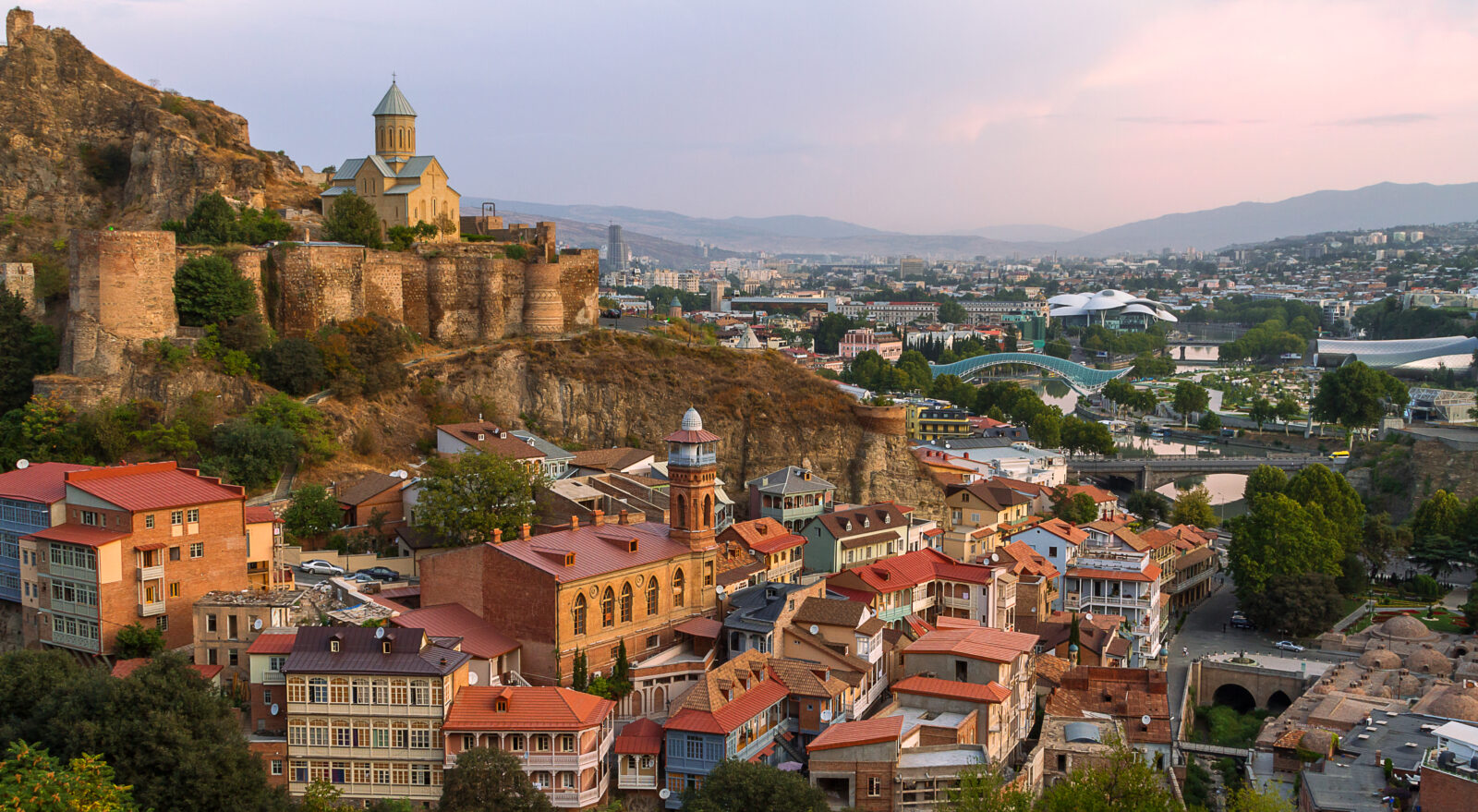Georgia – measuring nearly 70,000 sq km, and yet home to 3.7 million people – is a unique one in terms of nature and climate, with everything from mineral waters and sulfur water pools to ancient caves, palm coasts, and mountains permanently capped with snow. As one of the most ecologically diverse countries in the world, Georgia is a four-season destination with plenty of options planners and delegates alike.
Thriving & Booming
The country now has the fastest growth in arrivals and the revenue per tourist visit is on par with benchmark countries like Bulgaria and Turkey. In addition to being a competitive market and offering associations value for money, Georgia is easily accessible (31 airlines operate in and out of the country, and there are direct flights to 49 various destinations). Georgia is also considered the safest country in Europe and the sixth-safest in the world. Georgia ranks 37th in Europe for meetings, with 17 international association meetings held annually, each of which averages between 400 and 500 delegates. But as tourism continues to rise and Georgia attracts more business events, infrastructure keeps booming.
The majority of conferences are held in capital Tbilisi, and the city boasts Georgia’s only conference centre, Expo Georgia, which spans 10,000 sqm of indoor space and includes 11 pavilions (five of which are used for events). The current range of hotels features nearly 81 halls that can accommodate a little over 9,000 delegates — the largest international hotel being the Sheraton Grand Tbilisi Metechi Palace Hotel. But this year, the city plans to welcome 15 internationally-branded hotels that will add capacity for an additional 8,000-plus guests. (The Panorama Sololaki will house the largest convention space, accommodating more than 3,000 delegates.)
In 2019, the city played host to the 18th World Federation of Tourist Guide Associations (WFTGA) international convention, which brought 300 guides and representatives from 70 countries, and Expo Georgia hosts a number of events like Tbilisi Art Fair and Wine Expo Georgia.
Tbilisi may have the country’s only convention centre, but other cities in Georgia are also starting to gain ground as conference destinations. For example, Batumi, named “Europe’s Leading Emerging Tourism Destination” by the World Travel Awards, hosts most of its events in international hotels, and the capacity will be doubled to nearly 6,000 people when six more hotels open by 2024. The city has already welcomed prominent conferences like the 10th anniversary of the Eastern Partnership, which brought together non-governmental and business representatives from the EU and six partner countries, in addition to international medical tourism exhibition Expo Med Batumi and tourism and hospitality trade show Expo Batumi Travel.

Strong sectors
Small- and medium-sized companies — as well as Fortune 500 — are looking to Georgia as a hub for delivery centres serving Western markets, in addition to ICT. This isn’t a new development, either. Georgia has been called “Top Reformer” over the past decade as the country has been transforming and setting an example for others in the region to follow.
The country boasts incentives like the world’s third-lowest tax rate, seventh in terms of Ease of Doing Business (according to World Bank), and eighth place on the FDI Regulatory Restrictiveness Index (OECD). Foreign companies started entering the market here in 2016, and by 2020, the estimated amount of employees in offshore IT and BPO jobs hit 6,000.
Multilingual voice services (Russian, German, English) were certainly one of the drivers that brought major companies like Majorel and Evolution, and Georgia has since attracted industries like architecture, design and engineering, as well as finance and accounting (particularly advisory firms like Nexia and BDO). Since the country is still considered “new” in terms of business and IT services, it’s an easier market entry than more established destinations. In fact, Georgia offers a savings of 55-80% in terms of annual operating costs, according to fDi Intelligence.
Education is another sector that is growing strong in Georgia. The tiny country is home to 62 higher education and 66 vocational education centres, and more than 24,000 students graduate each year. Georgia’s Innovation and Technology Agency (GITA) offers a training programme aimed at some of the most in-demand fields of IT, while Kutaisi International University’s (KIU) model, developed in partnership with the Technical University of Munich, caters to vocational, undergraduate, graduate, and post-graduate degree programmes – specifically in the fields of science and technology. Meanwhile, David Tvildiani Medical University has been providing higher education in medicine for the last 30 years, based on science and best international practices.
Fintech future
Following the Estonian model, Georgia is positioning itself as a fintech hub for the region, and companies like AI-focused Optio.Ai and cloud-based Lightspeed are gaining international attention. Georgia’s size is ideal for piloting, testing and validating a company, particularly now that non-bank lending is a strong option, according to fDi Intelligence. Already among the top three countries in the world to use contactless payments, Georgia is becoming a prominent figure in the cryptocurrency world, and low electricity prices have also helped it become one of the largest hubs for crypto mining, which requires a lot of energy.
As the country’s sectors continue expanding, and more startups and homegrown companies settle in the capital, Tbilisi — as well as a few other growing cities — is emerging as an exciting “new” locale. Not only does it offer a wide range of culture and natural charm, Tbilisi is a breeding ground full of future-focused tech and education sectors that will add value to meetings and provide an interesting knowledge exchange for visiting associations.
More information on Georgia as a conference destination please visit www.gceb.ge or email info@gceb.ge
